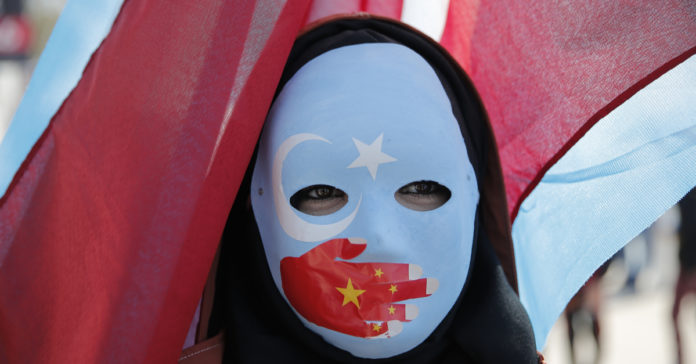A Chinese government research centre has said the minds of Uyghur women had been “emancipated” resulting in a natural decline in the population in Xinjiang.
According to the China Daily, a report released on Thursday said the eradication of extremism had given Xinjiang women more autonomy.
The Xinjiang Development Research Centre said extremism had incited people to resist family planning. This had led to rapid population growth, resulting in the prevalence of early marriage, bigamy and frequent unplanned births.
The minds of Uyghur women were emancipated and gender equality and reproductive health were promoted, said the report, making women no longer “baby-making machines.” Women have since been striving to become healthy, confident and independent.
Family planning policies have been fully implemented in the region in accordance with the law, the report said.
The changes were not caused by “forced sterilization” of the Uyghur population, as repeatedly claimed by some Western scholars and politicians, it said. In a research report released last year, Adrian Zenz, a German scholar, said there had been a significant drop in the natural population growth rate in southern Xinjiang in 2018 and claimed that proved China was trying to control the size of the Uyghur population.
The research centre’s report said safe, effective and appropriate contraceptive measures are now available to couples of childbearing age in Xinjiang, and their personal decisions on whether to use those measures — which include tubal ligation and the insertion of intrauterine devices — are fully respected.
Subscribe to our newsletter and stay updated on the latest news and updates from around the Muslim world!
As a result, the birthrate in Xinjiang decreased from 1.6 percent in 2017 to 1 percent in 2018, and the natural population growth rate fell from 1.1 percent to 0.6 percent.
The Uyghur population grew from 10.2 million in 2010 to 12.7 million in 2018, an increase of more than 25 percent, while the population of Han Chinese people in the region increased by just 2 percent to 9 million over the same period.
The report said an increasing number of people in southern Xinjiang were deciding to marry and have children later in life, seeing the benefits of fewer but better births, and the change was due more to personal choice than government policy.
Up until 2015, the Chinese government enforced a “one-child” family planning policy nationwide, which allowed most urban couples no more than one baby. Ethnic minorities, such as the Uyghur people, were typically allowed to have up to three but families from these groups often had many more children.
When China officially began the two-child policy in January 2016, Uyghur citizens living in cities were limited to two children for the first time as well although their rural counterparts could still have up to three.




















